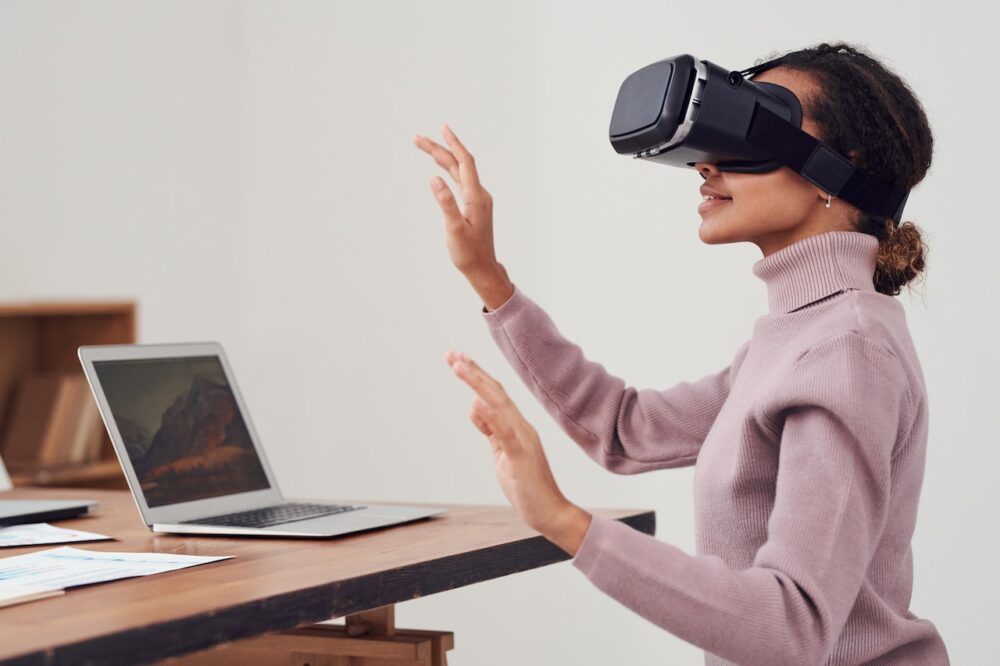Research has found that almost half of consumers expect that the metaverse will become widespread over the next ten years – and, half of retailers expect to implement it as a sales channel, combining the benefits of both online and in-person shopping experiences.
Melding the digital and the physical
Over the last couple of decades or so, many brands have begun to incorporate digital aspects into physical offerings – or, physical aspects into their digital offerings, for that matter – to create more holistic experiences. This is a technique that has long since been honed by online casinos. Let’s take the online slots series from Betfair Casino, for example – these games can be accessed on-demand, through an online portal or app, using a plethora of different digital technologies. However, these games also boast interactive gameplay – the player must physically interact with the system in order for the slots to spin. Thus, such games are not just digital or physical, they are a blend of both, which serves to create a more authentic and immersive experience.
The metaverse takes this melding of physical and digital one step further, utilising internet connectivity, augmented reality (AR), and virtual reality (VR). Put simply, AR overlays sensory elements over real-life experience, integrating digital visuals, sounds, and so on into the environment of the user. On the other hand, VR is a kind of simulation – a 3D virtual environment, if you will – that users can interact with using specialised clothing and equipment. By combining the two, the metaverse offers experiences in both digitally enhanced physical reality and physically interactive digital reality, all accessed via a shared space on the internet.
🏆
The 2024 Creative Retail Awards are open for entries.
The Creative Retail Awards are much more than a mere accolade; they represent the pinnacle of achievement in the retail industry. Garnering a nomination or winning one of these awards is a testament to innovation, excellence, and leadership.
www.creativeretailawards.com

How might the metaverse be used in retail?
According to a survey by KPMG, 47% of UK consumers predict that the metaverse will become widely used within the next decade. The survey also revealed that the metaverse can be quite a divisive topic – 37% of consumers feel positively towards this trend, whilst 31% feel negatively, and another 32% admitted they did not know enough about the metaverse to form a strong opinion either way. Whilst consumers are on the fence about the rise of the metaverse, this is likely due to the fact that we don’t know for sure how this technology might impact our experiences, and how much change we might have to see before we get there. Nevertheless, the introduction of an accessible metaverse can spell a multitude of new opportunities for retailers to take their experiences to the next level.
 One study, published by Statista, surveyed retailers in the UK to uncover how they might apply the metaverse to their future offerings. 50% of retailers stated that they expect to use the metaverse as a sales channel to sell both virtual (21%) and physical (29%) products. In this case, the metaverse could allow retailers to create an immersive virtual shopping experience, where users can try out products from the comfort of their own home. 27% of retailers also expect to use the metaverse for virtual experiences, 31% for engagement, and 35% for marketing, which could include things like face-to-face customer service, promotional events, and pop-up shops. All of these elements can be combined to create an authentic retail experience that boasts both the convenience of an online store and the reassurance of an in-person retail experience.
One study, published by Statista, surveyed retailers in the UK to uncover how they might apply the metaverse to their future offerings. 50% of retailers stated that they expect to use the metaverse as a sales channel to sell both virtual (21%) and physical (29%) products. In this case, the metaverse could allow retailers to create an immersive virtual shopping experience, where users can try out products from the comfort of their own home. 27% of retailers also expect to use the metaverse for virtual experiences, 31% for engagement, and 35% for marketing, which could include things like face-to-face customer service, promotional events, and pop-up shops. All of these elements can be combined to create an authentic retail experience that boasts both the convenience of an online store and the reassurance of an in-person retail experience.
Overall, no matter how the metaverse is applied to retail in the next decade, one thing is for sure – the opportunities are seemingly endless.












